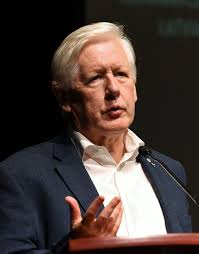
Introduction
Bob Rae, a former Premier of Ontario and a Member of Parliament, remains a significant figure in Canadian politics. His political career spans decades, marked by his leadership during critical times in Ontario and Canada as a whole. Understanding his contributions and challenges is vital for grasping the evolution of the political landscape in Canada today.
Political Career
Bob Rae was born on August 2, 1948, in Ottawa, Ontario. He graduated from the University of Toronto and went on to Oxford University as a Rhodes Scholar. Rae entered politics in the 1970s, becoming a member of the Ontario New Democratic Party (NDP). His groundbreaking moment came when he was elected as the 21st Premier of Ontario from 1990 to 1995, leading a government characterized by progressive social policies and a focus on labor rights.
Under Rae’s leadership, Ontario faced significant economic challenges, including high unemployment and a burgeoning deficit. His government introduced measures aimed at protecting workers and adapting public services. However, the tough economic climate led to a backlash from voters, and Rae’s government was ousted in 1995, marking a pivotal moment in his career. Despite the setbacks, Rae remained active in politics, taking on various roles, including serving as a Member of Parliament for the Liberal Party.
Recent Contributions
In recent years, Bob Rae has taken on a prominent role on the international stage. As Canada’s Ambassador to the United Nations from 2020 to 2022, Rae focused on pressing global issues, including human rights and climate change. His work at the UN underscored Canada’s commitment to global responsibilities and highlighted Rae’s adaptability to evolving political landscapes.
Legacy and Significance
Bob Rae’s political journey illustrates the complexities of governance in a diverse and evolving Canada. His tenure as Premier laid the groundwork for contemporary discussions around social justice, economic policy, and public service reform. As an elder statesman, Rae’s insights continue to shape Canadian political discourse.
As Canada faces significant challenges, including economic recovery post-pandemic and climate change, Rae’s experiences and strategies will likely inform new leaders and activists. His legacy serves as a reminder of the need for resilience and progressive thought in shaping policy for the future.
Conclusion
Bob Rae’s influence on Canadian politics cannot be overstated. His journey from the NDP to the Liberal Party, coupled with his international work, encapsulates a unique perspective on governance. As the nation navigates its future, understanding the contributions of figures like Rae is essential for anyone invested in the discourse surrounding Canada’s political evolution.



